Rutland osprey travels 3,000 miles despite wing injury
- Published
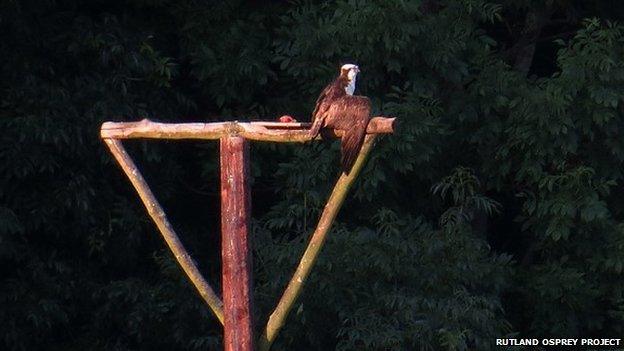
Osprey 03(97) badly injured his wing in 2014, prompting fears it may never return to Rutland
An osprey has returned to England after a 3,000-mile trip, despite picking up a wing injury before leaving for Africa last autumn.
The Rutland Osprey Project said its oldest bird, known as 03(97), was "nothing short of amazing" after returning from West Africa on Tuesday.
Kayleigh Brookes, of the project, said it was concerned about his ability to survive the journey.
The 18-year-old is now starting his 15th season at Rutland Water.
Staff at the nature reserve had to provide fish for him following the injury which meant he could not fly or fish for himself.

Rutland ospreys
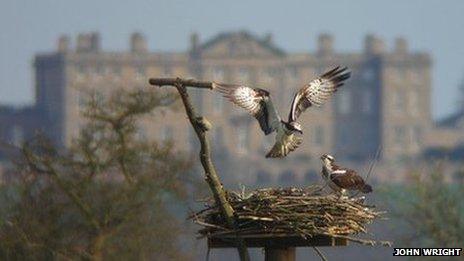
Rutland Water is home to the first ospreys to breed in England for 150 years
Young chicks were translocated from Scotland to the reservoir in the 1990s
Some of the birds have been tracked using satellites, charting their remarkable 3,000-mile (4,500km) journey
An adult osprey weighs about 3.3lbs (1.5kg) and has a wingspan of about 5.5ft (1.7m).

His wing appeared improved when it was time to migrate, but staff still feared he would struggle and worried he may never return.
But on Tuesday, one day different from the previous year, he arrived back at the reservoir and immediately went fishing.
Ms Brookes said: "We all harboured concerns about his strength and his ability to survive the arduous 3,000-mile journey to his wintering grounds.
"Well, clearly he surpassed our expectations and granted all our wishes."
Last year, five of the six pairs who returned to breed at Rutland Water did so successfully, but it is hoped they could see even more birds return this year.
Juvenile birds do not leave their winter homes for at least two years after they first make the journey south.
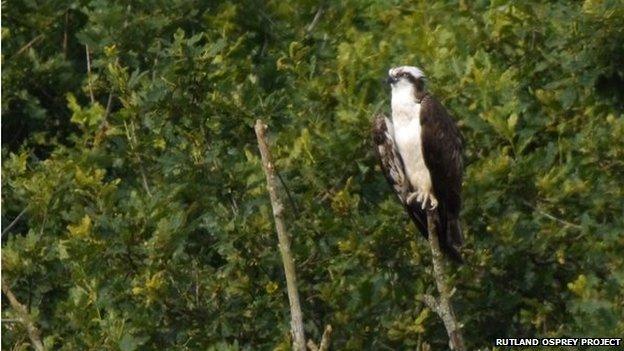
Osprey 03(97) is the project's oldest bird
- Published14 February 2015
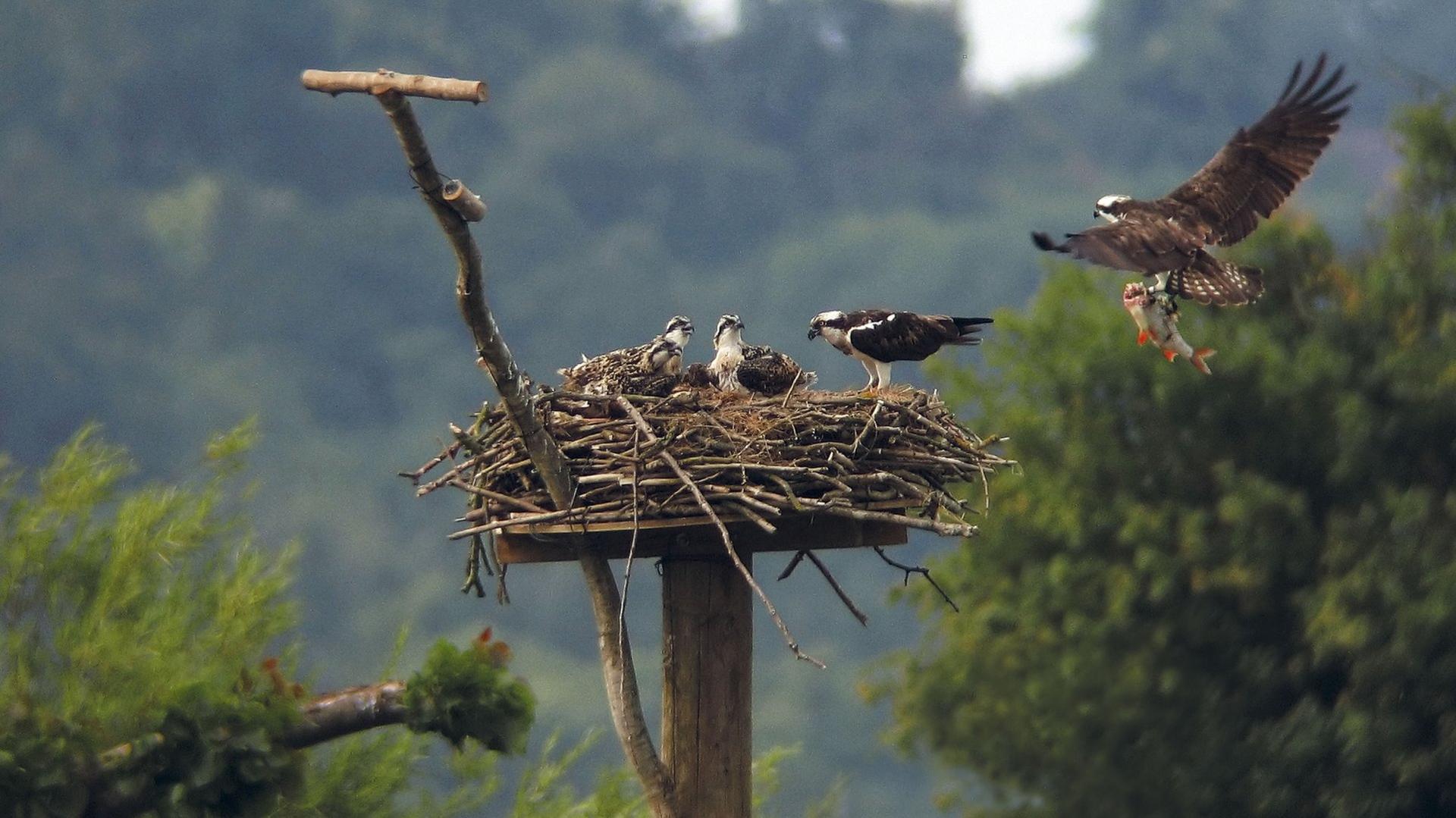
- Published17 May 2014
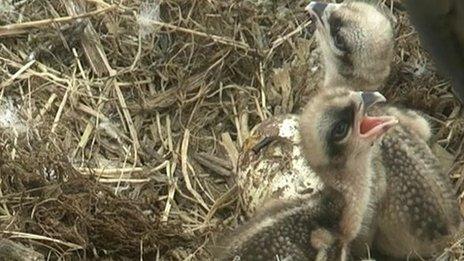
- Published27 June 2013
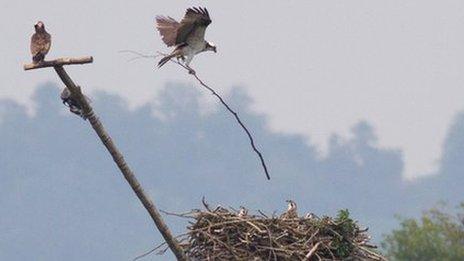
- Published23 May 2013
